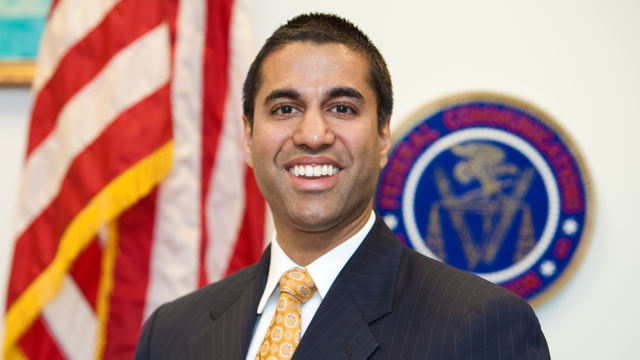The Federal Communications Commission has begun to rollback net neutrality rules established during President Obama’s time in office. FCC chair Ajit Pai, who leads the commission in creating new rules that will benefit mainly cable and wireless companies, argues that net neutrality rules have slowed down investment in broadband infrastructure. To prove his point, he cited a study showing that domestic capital investment among large ISPs has dropped 5.6 percent between 2014 and 2016, which he blames on heavy-handed rules.
The Wall Street Journal quotes Pai as proposing that we “return to the Clinton-era light-touch framework that has been proven to be so successful,” adding that, “the evidence so far strongly suggests that this is the right way to go.”
Proponents of net neutrality say that Pai’s proposed rules, as FCC’s lone Democratic commissioner Mignon Clyburn puts it, “would deeply damage the ability of the FCC to be a champion of consumers in competition in the 21st century.” She cited a competing report, by the Internet Association, a trade group that represents Facebook, Google and their ilk, that “total capital investment by publicly traded Internet providers was up about 5 percent since the 2015 rules.”
Clyburn suggested the FCC should “consider investment in Internet firms,” and Pai countered that, “critics have been including non-U.S. broadband investment in their statistics.”
The current net neutrality rules, aimed to make broadband providers treat all Internet traffic the same, run afoul of the broadband industry, which “fears the far-reaching rules opened the door to FCC rate regulation and other burdensome oversight, diminishing incentives for new investment” and potentially hindering “new products and services, including potential new alliances between broadband providers and major entertainment, shopping, search and social-media platforms.” Verizon was one such provider that labeled the 2015 rules “a serious mistake.”
Wired points out that the very companies opposed to the 2015 net neutrality rules insist that they support net neutrality. But, it says, their version of net neutrality isn’t the full definition. Instead, “it’s a version of net neutrality that doesn’t cover the loopholes Internet providers have already discovered.”
What broadband providers really want is to no longer be classified as Title II common carriers, like telephone service providers. But, without that Title II classification, the FCC no longer has the authority to enforce net neutrality, as decided in federal court in a case pitting Verizon against the FCC. AT&T and Verizon executives have urged net neutrality to be decided by Congress, which “could prevent some of the worst types of net neutrality violations.”
But, without that Title II classification, the FCC would still not have the authority to stop ISPs from giving preferential treatment to its own services, be it speedier access or not counting it against a data cap (called “zero rating”). Plenty of ISPs are already engaged in the latter practice, and although Netflix, for example, can “afford to sponsor data for their customers,” newer and smaller companies cannot. If ISPs are reclassified as Title I providers, they will be free to exploit loopholes to offer preferential services even if they are banned from blocking or throttling the competition.


No Comments Yet
You can be the first to comment!
Sorry, comments for this entry are closed at this time.